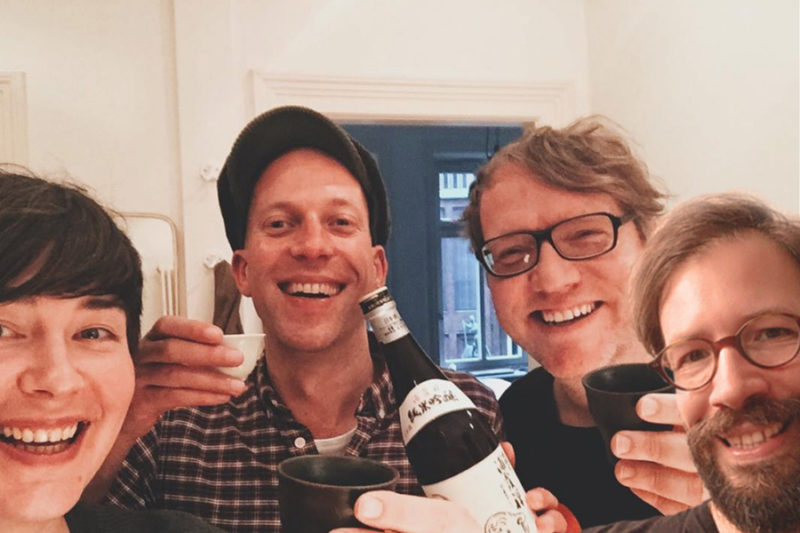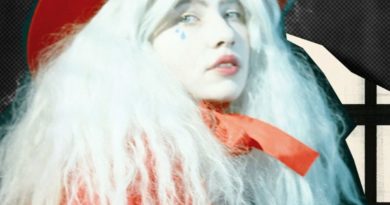Pingipung on holding up in the era of physical distance
Founded in 2002, Hamburg based independent label Pingipung is a home for various styles and musical cultures from around the world. Their catalogue which is only filtered by the mutual taste of the four label-owners (Andrea Wienck, Andi Otto, Heiko Gogolin and Nils Dittbrenner) includes Turkish acts Y Bülbül and Anadol as well as Kenyan/German duo ODD OKODO, Berlin’s dub outfit Quasi Dub Development and Swedish computer acid wizard Goto80.
One of the founders and musicians of Pingipung, Andi Otto answered our questions on how they are holding up in the era of physical distance, their approaches, their take on dynamics other than the pandemic shaping the world right now, etc.
“Everybody has more time to listen when the world is slow, this affects ourselves as well as our listeners, it’s a good thing.”
It’s been a whole year under the pandemic conditions. How has your work been affected?
We sell records, mainly physical LPs. Therefore closed record shops and especially no shipping options to certain countries were pretty much a worst case scenario for us in the first lockdown. For about five months we were not able to ship any records to customers who ordered from the US, for example. A lot of communication had to go into informing customers that their orders are on hold, that we can’t predict for how long, if they want their money back. That’s exhausting, but we didn’t want to shut down our online shop.
A brighter side: our online plays on Spotify etc. peaked in last April, this made things a bit easier, but we don’t love streaming very much. Another bummer: the international tour by the Kenyan/German duo ODD OKODDO got obviously cancelled. Their debut album AUMA had just got a sweet interview feature on Bandcamp Weekly nd we had big hopes for their career because they are a fantastic live act. Live gigs of our artists are important for us as a label because it generates all kinds of attention. Almost nobody has seen their show yet, this is one more thing to look forward to in post-covid days.
How has your experience been in terms of “adaptation”?
We released an ambient album by Andi Otto & F.S.Blumm in April 2020 which we spontaneously bundled with a jigsaw puzzle of the artwork. It shows a beautiful psychedelic rainbow shape on top of an old Japanese map. Our fans could work away the 1500 pieces while listening to the album, which was a perfect thing to do in the first lockdown. Other than that, we didn’t adapt too much. Pingipung is up and running for almost 20 years now, and we run the label as a collective of four people which means it’s not our main and only income. It also means we don’t get overly hectic about the sudden changes because we trust that what we do is for the good spirits in this world.
What are your demands?
You mean general demands? That the virus goes f*** itself and mutates somewhere else 😉
How has it affected your approach to music in general?
We believe that the world needs good music now more than ever and we’re eager to release a positive and deep output from a diverse set of artists. Like Y Bülbül’s thoroughly uplifting „Fever“ LP from last autumn. We’ve never focused too much on the party side of things but rather provide music for private listening experiences, inner travels and imaginary explorations. Everybody has more time to listen when the world is slow, this affects ourselves as well as our listeners, it’s a good thing.
“We need what Laurie Anderson once called a “bullshit detector“. A filter which we can trust individually and also rely on as a means to form the communities we choose.”
What has this past year taught you?
Change is the only constant. That’s maybe the only truth from last year. Then again, also mutation is change and it may make the whole crisis go full circle. As for positive change, a certain modest attitude would probably not be omnipresent right now if the world had continued spinning at the old pace; appreciation of simple things, like having good food and beer with our loved ones, nature and our precious future ecosystems, the worth of non-digital experience and communication… we now feel our privilege to be alive as we are in a different light and we feel humble about it.
Besides the pandemic, what other key changes (for instance BLM or other struggles) had effect on you?
The shift to omnipresent digital communication involving everybody is a huge change. It affects how we read the world. The ability to filter the noise is a major challenge. We need what Laurie Anderson once called a “bullshit detector“. A filter which we can trust individually and also rely on as a means to form the communities we choose.
This interview is originally published in Turkish in Bant Mag. No: 74, our special music issue.



